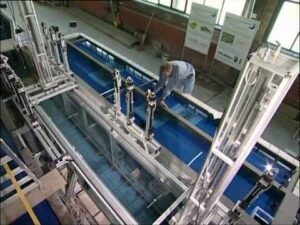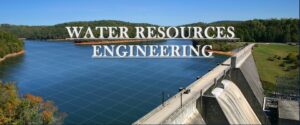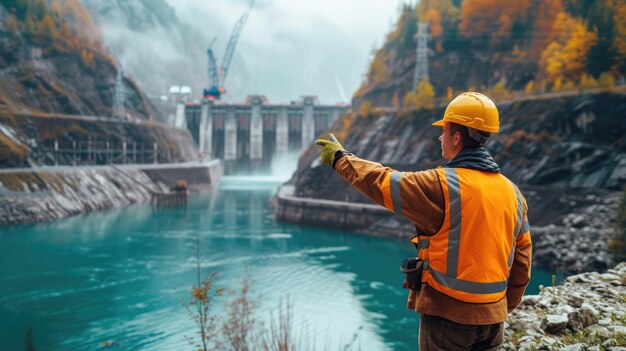Specialized Civil Engineering Job
-
Introduction
-
Specialized civil engineering job focus on specific fields, industry, requiring advanced technical expertise and problem-solving skills to tackle complex infrastructure challenges. Whether designing earthquake-resistant structures, optimizing transportation networks, managing water resources, or improving environmental sustainability, specialized civil engineers play a crucial role in shaping modern society. Their work involves in-depth analysis, cutting-edge technology, and strict adherence to safety and regulatory standards to ensure long-lasting and efficient solutions. By focusing on their area of expertise, these professionals contribute to building smarter, safer, and more sustainable infrastructure that meets the demands of a rapidly evolving world.
-
Specialized Civil Engineering Job
-
A specialized civil engineering job focuses on a specific area within the field, such as structural, geotechnical, transportation, environmental, or water resources engineering. For example, a structural engineer designs and analyzes buildings, bridges, and other infrastructure to ensure they can withstand loads and environmental factors. Geotechnical engineers assess soil and rock conditions to support construction projects, while transportation engineers develop efficient roadways, highways, and transit systems. Environmental engineers work on sustainable solutions for waste management, water treatment, and pollution control. These specialized roles require in-depth technical knowledge, problem-solving skills, and adherence to safety and regulatory standards to create durable and efficient infrastructure.
-
Geotechnical Engineer
- Geotechnical engineers in the success of construction projects by evaluating the properties of soil, rock, and groundwater to ensure structural stability. They conduct detailed site investigations, analyze soil samples, and design foundation systems that can withstand natural forces such as earthquakes, landslides, and soil erosion. Their work is essential for projects like skyscrapers, highways, tunnels, and dams, where ground conditions directly impact safety and durability. Using advanced technologies such as computer simulations and geophysical surveys, geotechnical engineers predict potential risks and develop innovative solutions to mitigate them. Their expertise bridges the gap between natural terrain and human-made structures, ensuring that infrastructure remains safe and resilient for years to come.
-
Transportation Engineer
- Transportation engineers play a critical role in shaping the way people and goods move by designing and improving transportation systems that are safe, efficient, and sustainable. They analyze traffic flow, assess infrastructure needs, and develop solutions to enhance roadways, public transit, and pedestrian pathways. By leveraging data-driven models and cutting-edge technologies like intelligent traffic management systems and autonomous vehicle integration, they optimize mobility while reducing congestion and environmental impact. Their work extends beyond road design to include airport planning, railway systems, and urban transit networks, ensuring seamless connectivity between different modes of transportation. Through strategic planning and innovative engineering, transportation engineers contribute to building smarter cities and improving daily commutes for millions of people.

-
Hydraulic Engineer
-
A hydraulic engineer specializes in the movement and control of water in natural and man-made systems, playing a crucial role in designing and managing water-related infrastructure. They work on projects such as dams, levees, canals, drainage systems, flood control structures, and water supply networks. Using advanced hydrodynamic modeling and fluid mechanics principles, they analyze water flow, predict flood risks, and develop solutions for water conservation and distribution. Hydraulic engineers also focus on sustainability, ensuring efficient water management while minimizing environmental impacts. Their expertise is essential for protecting communities from water-related hazards and ensuring a reliable water supply for agricultural, industrial, and urban needs.
-
Environmental Engineer
- Environmental engineers work at the intersection of science, engineering, and sustainability, tackling some of the biggest environmental challenges of our time. They design water treatment systems to provide clean drinking water, develop pollution control technologies to improve air quality, and create waste management strategies to reduce landfill waste. Their job isn’t just about solving problems—it’s about preventing them in the first place by designing eco-friendly solutions and ensuring industries follow environmental regulations. Whether working on climate resilience projects, restoring contaminated land, or improving renewable energy systems, environmental engineers help shape a world where people and nature can thrive together.

-
Water Resources Engineer
-
Water resources engineers focus on the management and conservation of water resources, designing systems to ensure the sustainable distribution and protection of water for various uses. They work on projects related to irrigation, flood control, water supply systems, and wastewater treatment, ensuring that communities have reliable access to clean water while safeguarding the environment. These engineers use advanced hydrology and hydraulic modeling to predict water behavior and optimize storage and distribution systems. They also address challenges like drought management, groundwater protection, and the impacts of climate change on water availability. By balancing human needs with ecological preservation, water resources engineers play a key role in maintaining the delicate equilibrium between society and the natural world’s water systems.



